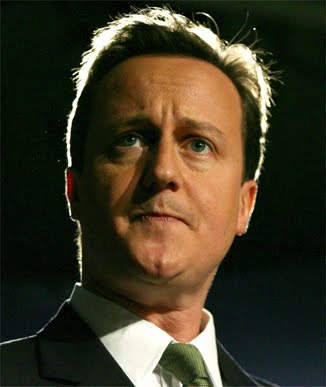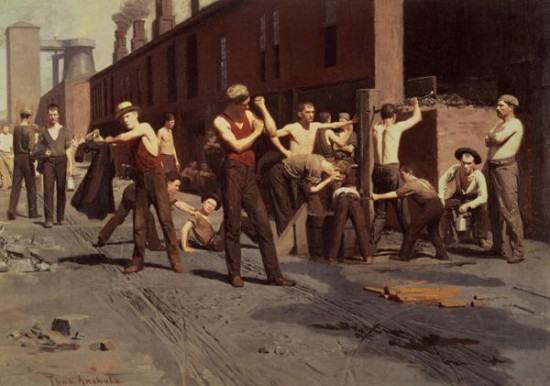
Valorised and Vilified: What Do ‘Citizens’ Do? Initial Linguistic Reflections
It is clear that debates about ‘who’ citizens are (as well as normative claims about who they ‘should’ be) are important to understanding the politics of citizenship. However, reflecting on the remit of this special series on ‘Migration and Citizenship’, another fundamental question occurred to me: what do citizens do? Describing the kinds of actions and activities in which citizens—however we may define them—reportedly engage could open further discussion about the nature of citizenship itself.
In my current work with the Centre on Migration, Policy, and Society (COMPAS), I focus on the ways that British newspapers talk about migration issues and relate these narratives to public perceptions and migration policy changes. Using techniques from corpus and computational linguistics, which enables researchers to analyse large amounts of text, I look for (ir)regularities and significant patterns of words. These contextual patterns, called ‘collocations’, can provide insight into a concept: one of the major contributors to linguistics, John Firth, famously expressed this feature of language when he said ‘you shall know a word by the company it keeps’. Applying Firth’s guiding principle to study of UK press portrayal of migrant groups reveals that, in the case of immigrants and asylum seekers, their company is relatively negative. Dr Scott Blinder and I showed that from 2010-2012, the British national press most often described ‘immigrants’ as ‘illegal’ while portraying ‘asylum seekers’ as ‘failed’.
But what about citizens? What does this group of people reportedly do in the context of migration coverage?

Where is British conservatism today?
On Friday 10th October 2014, Britain woke up to the news that the voters of Clacton-on-Sea had elected a UKIP Member of Parliament. To some, no doubt, this marked the inevitable culmination of the fracturing of the British right that began over twenty years earlier with the ratification of the Maastricht Treaty, under the auspices of the then Conservative Prime Minister, John Major. It was this episode that led first to the formation of the Anti-Federalist League and then to its successor organisation, the United Kingdom Independence Party, in 1993, which has since attracted significant numbers of disaffected Tories, angry at the Conservative’s apparent acquiescence to further European integration. UKIP has grown now to a membership of over 35,000 and seems to be finally breaking out of its single issue, single personality mould, to become a real electoral challenge to the Tories. The recent defection of two sitting Conservative MPs, Douglas Carswell and Mark Reckless, to UKIP, confirms for some people what they have been thinking for a long time: that the Conservative Party no longer does what it says on the tin, that it is, to quote the journalist Simon Heffer, “insufficiently conservative”, the torch of conservatism having now passed to Farage and co.
In this post, the first of three on conservatism in Britain, I want to consider the plausibility of this claim, as part of a broader attempt to determine which political party in Britain today has the most convincing claim to the mantle of conservatism.[1] The answers are by no means clear-cut (they rarely are in politics) and may even seem counter-intuitive. It must be stated at the outset that conservatism is not, by any means, a single, coherent or homogenous ideology. It consists of various branches and traditions and shares similarities with other, nominally distinct, philosophies—notably liberalism. This undoubtedly complicates the task in hand, but it is important to recognise the complexity of the object of study before embarking on the analysis.

Alternatives to fixed-term elections
Until the present coalition government introduced the Fixed-term Parliaments Act, in 2011, the UK Prime Minister had discretion to call elections at will, a power often used for partisan advantage. As Petra Schleiter reports in her recent post on Politics in Spires, 60% of the UK’s post-war elections were called early (i.e. more than six months before required). Further, her analysis suggests that this gave incumbents a 6% vote gain, roughly doubling the PM’s chances of remaining in office.
The Fixed-term Parliaments Act allows early elections to be called only in very restricted circumstances (either with support of two-thirds of the House of Commons or following a vote of no confidence after which no alternative government is approved by the Commons within 14 days). Schleiter points to a number of advantages of this; not only does it stop PMs from calling elections opportunistically, in order to increase their chances of victory, but depriving them of this power also prevents them from using the threat of an election to bully backbench MPs or coalition partners, thereby making the government more accountable to parliament.
However, in focusing on the advantages of fixed-term elections, Schleiter does not consider whether there are certain advantages to the old system, in which an election could be called at any moment.

Alternative liberal solutions to economic inequality
The social problem of the future we considered to be, how to unite the greatest individual liberty of action, with a common ownership in the raw material of the globe, and an equal participation of all in the benefits of combined labour.
– J.S. Mill, Autobiography, 1873, speaking of himself and the philosopher Harriet Taylor.
Thomas Piketty’s Capital in the Twenty First Century argues that, absent corrective action, we can look forward to a rise in capital’s share of national income and a corresponding depression of the share of labour. This might not be so significant were capital evenly distributed so that all could share in its higher returns. But Piketty shows that the distribution of capital is extremely unequal and likely to grow more so. At the same time, he argues, the share of wealth that is inherited looks set to increase. Together these trends threaten to produce a society in which a relatively small section of the population comes to claim a larger share of national income through its (increasingly) concentrated ownership of (increasingly) inherited wealth.
How might we prevent this from happening?

Are we fighting a just war against the Islamic State?
This question is a little provocative so a clarification is in order. There is a distinction between whether a war is just (jus ad bellum) and whether it is being conducted in a just manner (jus in bello). In the case of IS it is incontrovertible that there is just cause for war. I have argued elsewhere that what is happening in IS occupied territory is attempted genocide. This legitimises military intervention, especially since the Iraqi government has requested help. What I wish to examine here is whether this war is being conducted justly.
Just war theory provides us with several principles that limit what is morally permissible in war. There are two principles that give us cause for concern when assessing the intervention against IS: proportionality and non-combatant immunity. The first of these is the idea that the means of war must be proportional to the ends. Soldiers should aim for victory, but this does not mean that victory can be pursued by any means necessary. There must be, to use Michael Walzer’s term, an ‘economy of force’ (Walzer, Just and Unjust Wars, 129-33). A general should not waste the lives of his soldiers in a bloody offensive when there are more economical means to victory. He should not resort to tactics that will produce longstanding bitterness and prolong the war (such as taking no prisoners).

The British constitutional reform crisis: a proposal
The UK needs a framework for federalisation. Here’s one suggestion for how this could work. The Problem Britain is on the brink of a catastrophe of which the left seems to be frighteningly unconcerned and unaware. If the Conservatives succeed in implementing English-only days at Westminster, it is likely to transform both Scotland and the rest of the UK into what will in effect be neoliberal dictatorships. Scotland will lose the ability to vote down proposals that would lead to steep cuts in its budget via Barnett consequentials if key services are privatised south of the border. English voters who may have voted Conservative or UKIP for ‘protest’ reasons such as concern about immigration or dislike of the EU could …

So what is a people’s constitutional convention?
Over the past couple of weeks, as the referendum campaign reached its climax in Scotland, a concept has suddenly started springing up all over the place in English political debate: the idea of a constitutional convention. (The Welsh National Assembly called for UK-wide constitutional convention in 2012.) In a letter to The Times on September 10, 19 experts on UK democracy set the proposal out as follows: ‘It is time for a UK-wide constitutional convention, on the lines of recent conventions in Ireland and Iceland, that gives citizens a say in shaping the future. Such a process needs the support of all the political parties, but it must retain its independence from them.’ Calls, similar in content or spirit, have come from Nick Pearce of IPPR,Compass, Rebecca Johnson …

Is bombing ISIS atrocity prevention or a token gesture ?
Last week, the UK government voted, by a huge majority of 481 MPs, to engage in military action in Iraq. Now, once again, we are effectively at war in the Middle East.
For anyone committed to humanitarian inclinations, military force – so easily legitimated through hyperbolic statements of threat, and dramatic images of missiles precisely destroying targets through an aircraft’s gun-sights – should be treated with deep scepticism. Yet the tendency to reflexively reject and virulently condemn military action out of hand is no less lacking in critical reflection than the mindless swallowing of hawkish hyperbole.
The international community has rightly been condemned for standing by and allowing genocide to occur in Rwanda in 1994, and in Darfur in 2003. Is this a similar case? The unfolding and deepening disaster in Iraq seems very much of our own making; so will inaction make us again culpable in unspeakable human suffering? Or is the impulse to fight mere atavistic “war fever”?[1] To answer these questions we need to interrogate two more: first, is the threat of ISIS as great as is claimed? And second, will military action do any good?









